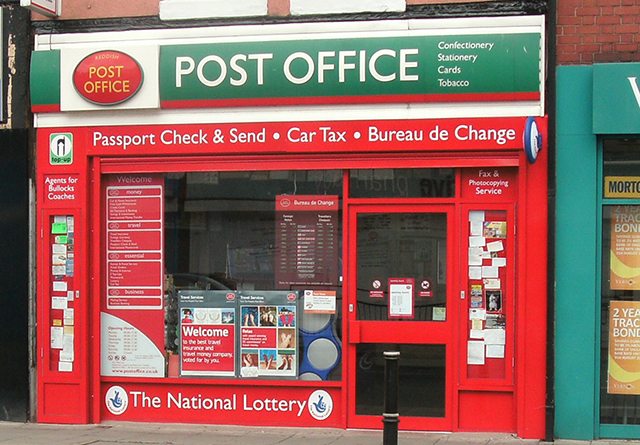Barclays has reversed its decision to prevent customers withdrawing money from the Post Office network.
It prompted fury when it announced its debit card holders could deposit money but not withdraw cash from a post office counter from January.
Cancelling that plan, the bank said it recognised the network was “valued by many communities in the UK”.
It had been the only one of 28 banks and building societies not to fully sign up to a Post Office agreement.
“Our decision provoked a great deal of public and private debate. We have listened very carefully to points that have been made to us by ministers in the government, by MPs, and by interested charities and consumer advocates,” said Barclays chief executive Jes Staley.
“Ultimately we have been persuaded to rethink our proposals by the argument that our full participation in the Post Office Banking Framework is crucial at this point to the viability of the Post Office network.”
Plans remain
Earlier this month, the Post Office unveiled a new agreement, covering the three years from January and allowing for postmasters and post mistresses to be paid more to take in and dispense cash.
Barclays is the only one to exclude cash withdrawals from its part of the agreement.
This prompted serious concerns from those who have seen bank branches and ATM services disappear from local communities.
Barclays said it would launch a cashback scheme at small businesses in remote towns and areas where there is no branch or ATM alternative within 1km (0.6 miles), and promised to commit to keeping branches open in towns where there are no other options for two years.
That plan continues despite the latest u-turn.
“We are confident that those actions would ensure that all of our customers, vulnerable and otherwise, continue to have access to cash, and we believe that our plans will ultimately expand access to cash through, for example, the free to use retailer cashback scheme we are launching,” Mr Staley said.
“We remain of that view, and this was confirmed for us in thousands of conversations with our customers in the past couple of weeks.”
Natalie Ceeney, who chaired the Access to Cash Review which called for an guarantee for future access to notes and coins, said: “I’m glad Barclays have come to this decision. They have listened to concerns of politicians, charities and most importantly, their customers.
“Lessons need to be learnt by Government. The cash infrastructure is fragile and cannot be left solely to commercial interests.”
Economic secretary to the Treasury, John Glen, who met with Barclays bosses earlier on Thursday, said: “It is vitally important that we have a model for the Post Office Banking Framework which is sustainable, now and in the future. We welcome Barclays’ commitment to engage constructively on this so we can safeguard access to cash for everyone who needs it.”
Rachel Reeves, chair of Parliament’s Business, Energy and Industrial Strategy committee, said: “I met with Barclays yesterday and as a Committee we were very keen that they should face proper public scrutiny for their actions. The BEIS Committee has called out this egregious behaviour towards customers and we welcome the fact that Barclays has belatedly realised the game is up on this policy.”


